READY TO GET STARTED?
REQUEST A FREE ESTIMATE
Fill out the form below or call (888) 466-7849 for a free, no-obligation estimate.

With the last day of school, graduation ceremonies, and Memorial Day quickly approaching, you’re probably feeling the pressure to get your outdoor area ready for all the festivities. Not only are you concerned about the look of your lawn and impressing your guests, but you also need to know which pests to avoid and, if possible, prevent from ruining your celebration. Here’s your party pest avoidance checklist:
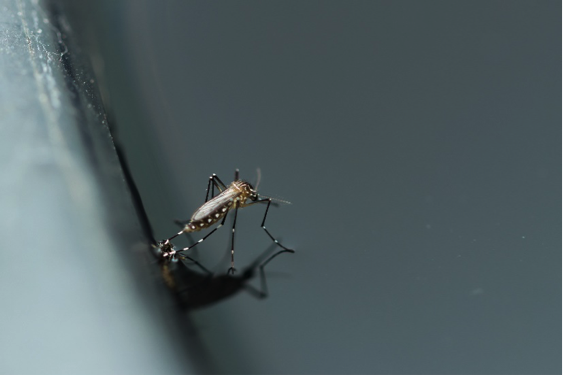
We’d like to be completely rid of mosquitoes forever, but that would be a difficult task! Let’s look at what you can do to reduce their occurrence in and around your home:
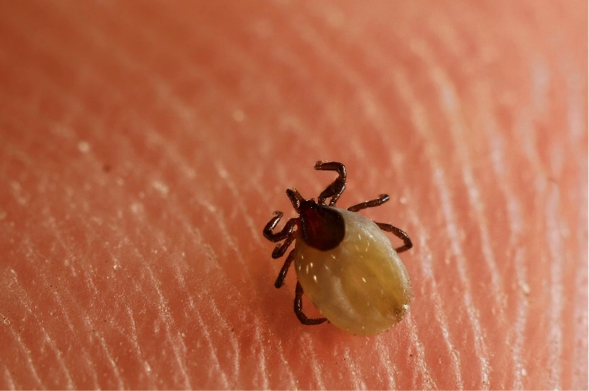
We understand the concern that ticks can breed. Take a look at these tips to prevent one of these pests attaching to you:
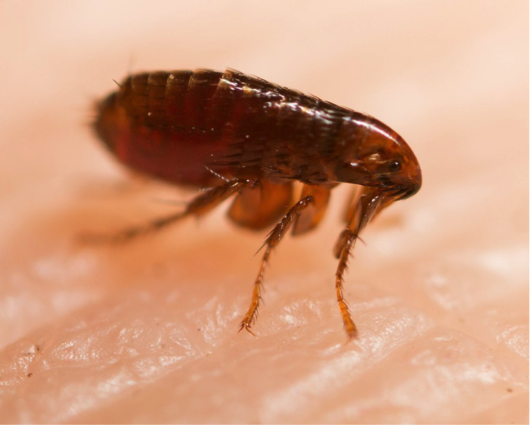
Fleas are typically a nuisance for our furry friends, though they can still cause issues for you too. Here are a few suggestions to keep your home and pets flea-free:
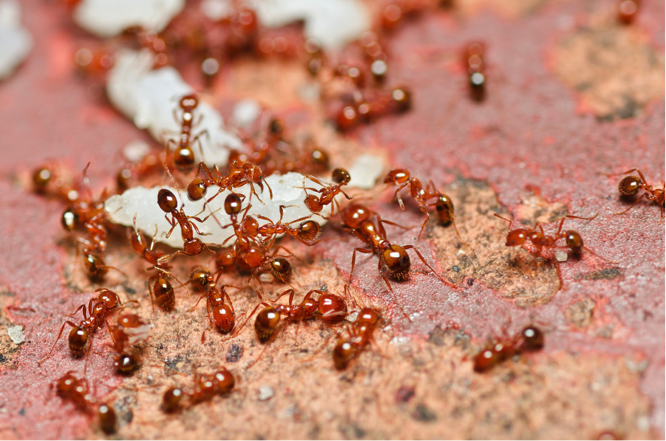
Like mosquitoes, fire ants can be an unwanted fixture on your lawn during the warmer months. They leave painful bites and can be an issue for pets and humans alike. To prevent fire ants from ruining your summer fun, try these tips:

Summer is in full-swing here in Georgia, the heat is rising, and the bugs are coming out to play (bite!). Here are 5 common summer pests to be on the lookout for and tips on how to prevent and get rid of them:
Chiggers (sometimes referred to as mites or red bugs) are so small they’re hard to spot. But you’ll know you’ve been bitten after an itchy, uncomfortable rash develops. While they don’t pose serious health risks, they can ruin outdoor fun and leave behind irritated skin that you’ll want to scratch. To prevent chigger bites this summer, limit time spent in areas prone to chiggers – woods, grassy areas, near lakes, ponds, streams & rivers – keep arms and legs covered when outside, and wear insect repellent with DEET. If you get bitten by chiggers (most commonly on legs and waist with red, itchy skin), take a bath or shower immediately to get rid of chiggers that may remain on your body, wash the clothes you were wearing in hot water, and then apply a itch-relief lotion or ointment to the affected areas – like hydrocortisone or calamine.
Mosquito bites, on the other hand, can be more serious since they carry multiple diseases, viruses, and parasites. The best way to minimize your risk of contracting mosquito-born illnesses like Zika, encephalitis, West Nile, dengue fever, and malaria (some of the most common) is to prevent mosquito bites by limiting travel to well-known, affected areas, keeping arms and legs covered in light-colored, loose clothing when outdoors, wearing insect repellent with DEET and reapply often, and controlling mosquitoes around your home with professional mosquito treatments. You can also reduce mosquitoes by eliminating breeding sites – any areas with standing water.
Fire ants can be dangerous for the whole family, including pets. They’re aggressive and cause painful bites, often with severe allergic reactions, which can be especially harmful to small children and pets. The best way to prevent and control fire ants around your home is with regular yard treatments, specifically targeting fire ant mounds, by a professional exterminator. Treatments are usually applied in granular form and get rid of fire ants in as little as 72 hours.
Bees can be a threatening summer nuisance and often cause painful stings if threatened. One of the most common summer bees is a paper wasp. Paper wasps will form nests on or in almost any horizontal surface, resembling an umbrella attached by a small stem. They vary in color but can be brown and yellow striped or red with blackish wings. They’re most likely to sting when their nest is disturbed, which can happen accidentally when nests are hidden. Paper wasps can be highly aggressive and cause severe pain and allergic reactions so it’s recommended to leave nests undisturbed if posing no serious threat or contact a bee exterminator to access the situation.
Ticks are dangerous for both humans and animals as they spread infectious diseases – like Lyme disease and Rocky Mountain spotted fever, through bites. Take steps to protect yourself from tick bites while outdoors by avoiding areas where ticks are prevalent, like wooded areas and in tall grass, and use an insect repellent with DEET. You should also treat pets with tick repellent products to reduce their risk of tick bites.
Click here for tick removal tips from the CDC.
Fire ants have long been a threat in the southern United States, but another aggressive ant species known as the tawny crazy ant is taking over in many areas of the region. These ants can invade structures in extraordinary numbers and Northwest Exterminating wants to advise homeowners to take preventative steps to protect their properties from infestations.
Unlike fire ants, tawny crazy ants don’t sting, but they can become a nuisance once inside. They are highly adaptable, nest everywhere and are even known to damage electrical equipment, so it is important for homeowners to take steps to curb their activity.
Crazy ants enter homes in the autumn or after rainfall because both conditions reduce their supply of honeydew. Once inside, crazy ants usually nest underneath floors or in wall voids. Outdoors, their nests are commonly found in soil under objects or next to foundations.
To prevent crazy ants from gaining access to a structure, experts at the National Pest Management Association (NPMA) recommend the following tips:
SOURCE: PPMA
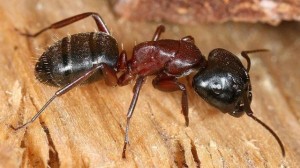 Ants have been making their presence known in homes as of late. Ants are one of the most common pests that homeowner’s and pest professionals find in and around homes. Common ant species are fire ants, carpenter ants, Argentine ants, acrobat ants, and odorous house ants.
Ants have been making their presence known in homes as of late. Ants are one of the most common pests that homeowner’s and pest professionals find in and around homes. Common ant species are fire ants, carpenter ants, Argentine ants, acrobat ants, and odorous house ants.
Ants have a wide range of habits. Some ants build mounds in the ground, others are found in homes near cracks and crevices, on counters, in kitchen sinks, pantries, and even bathrooms. Knowing the different species of ants and their habits and preferences is key in controlling an ant problem.
Most ants are simply a nuisance pest. They cause little damage but will invade and ruin food and some ants bite. Generally speaking, there are no diseases associated with ants.
A licensed pest professional can identify the type of ant that you are experiencing and develop a customized plan to get rid of ants. With this process, you are using the least amount of chemical possible (if any) while also coming up with a plan that will deter ants from returning. If you are one of the many homeowner’s experiencing ants right now, call Northwest Exterminating at 888.466.7849 or visit www.callnorthwest.com
Properly identifying pests is such an important part of pest control prevention and management. Professionals and homeowners both need to be aware of what pest they are dealing with so they know what actions need to be taken to properly get rid of and prevent the pest from returning.
Ants are a common concern in both residential and commercial dwellings. Knowing what kind of ants you have will help in knowing the best course of action to treat the property. Our Pest ID page gives 5 common ants that can be found in properties in the southeast: fire ants, carpenter ants, argentine ants, acrobat ants, and odorous house ants. To find out more information about any of these types of ants, visit our Pest ID page or click on a picture below.